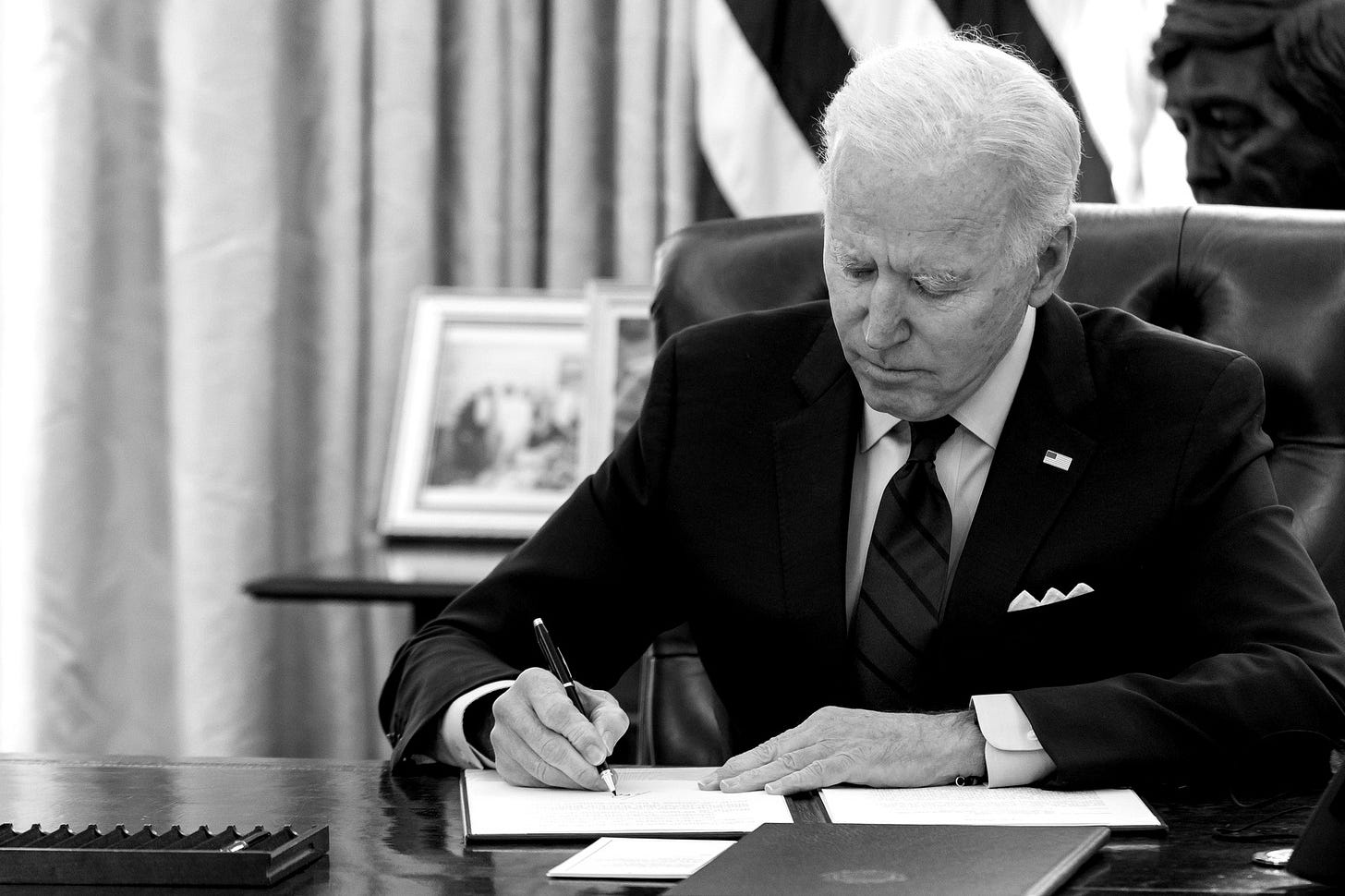The Danger of Preemptive Pardons
How blanket pardons may undermine future attempts to hold people accountable.

I woke up yesterday morning to a curious headline. In his final hours in office, now-former President Joe Biden issued preemptive pardons to several individuals (including many of his family members) who may be targeted under the new Trump administration, shielding them from future prosecution. Though shocked, I was not surprised.
On its surface, the idea makes sense. Trump constantly vowed revenge against his enemies during his presidential campaign. Even after his Nov. 5 victory, he continued this rhetoric. “For what they did, honestly, they should go to jail,” he said in a December 8 interview with Meet the Press—referring to the members of a House committee that investigated the Capitol riots on January 6, 2021. When asked if his administration would investigate his enemies, he simply responded: “If they were crooked, if they did something wrong, if they have broken the law, probably.”
And many of Trump’s potential targets are feeling the heat, too. The New York Times interviewed many of them anonymously a few days ago. One senior White House official explained his plan succinctly: “Step One: Take a long vacation on the opposite side of the globe. Step Two: Fly home and hire a lawyer.” Many others expressed fear they would lose private-sector jobs or be prosecuted by the new administration.
It is a tense time in Washington. And no one should have to live under the threat of prosecution for a crime they haven’t committed. That being said, preemptive pardons might not help the situation or even make it worse.
For starters, preemptive pardons don’t eliminate most of Trump’s tactics. His strategy is largely based on intimidation and fear. Could these pardons curb the most extreme threat, unjust prosecutions? Perhaps. But they do nothing to stop a host of other concerns: public harassment, private pressure, violence. Make no mistake—a pardon is not a safety blanket. It acts as a legal shield and nothing more.
There are graver implications. What happens at the end of Trump’s term in 2029? Will he preemptively pardon everyone under his watch? Is this the start of a never-ending cycle where the President’s most loyal advisors get off the hook at the end of each term?
That fate is not without precedent. A similar cycle occurred when Senate Democrats in 2013 used the ‘nuclear option’ to force through certain judicial nominees with only 50 ‘yes’ votes. Their rationale was to prevent Republicans from blocking their nominees through a filibuster, which took 60 votes to break. But it ultimately did more harm than good.
When Republicans retook the chamber four years later, they used the nuclear option to push through multiple Supreme Court nominees on party lines. Then-Minority Leader Mitch McConnell’s vow to Democrats that “you may regret [using the nuclear option] a lot sooner than you think” came true, and it led to three Republican justices on the Court who might not have been able to get past the previous 60-vote threshold.
Following this logic, preemptive pardons may prevent legal investigations of abuses within the new Trump administration in four years. What if Trump issues blanket pardons to his officials? Democrats may be stuck.
More worryingly, what if Trump issues preemptive pardons to officials before they execute certain policies? Could this let staffers carry out plans without fear of criminal punishment? One may argue that Trump could do these things without Biden’s preemptive pardons, but it certainly gives him cover. Give an inch, take a mile.
You may be wondering why I haven’t addressed the legal implications of these pardons yet. While I suspect we may see a Supreme Court case down the road, the simple fact is that an unprecedented action like this will naturally have legal challenges. But the changes in presidential practice worry me more.
Preemptive pardons eliminate accountability. They remove the possibility of prosecuting criminal acts for both parties and will ultimately hide evidence that the legal process uncovers. Again, do I believe many of Trump’s adversaries deserve retribution? Of course not. But preemptive pardons remove accountability for one’s actions and shield them from legal consequences.
Ultimately, our only hope to stop the abuse of pardon power may be for future Presidents to exercise restraint toward it. Unfortunately, restraint is in short supply. Yesterday, President Donald Trump pardoned most people convicted for their role in the January 6 riots—extending the cycle of unaccountability that transcends political parties. It seems that, given the state of our system, this cycle will not stop soon. A wholesale restoration of democratic ideals and agreement on what is acceptable may be needed to change things.
This restoration begins with us. Preemptive pardons may seem minor, but they are emblematic of a lack of accountability on both sides of the aisle. As a country, we must strive to be better. We must hold our leaders to a higher standard, stay informed, learn to listen to different perspectives and take others’ opinions to heart. Together, we can start rebuilding the ‘rules of the game’ we’ve broken. By doing so, we can begin to escape our cycle of unaccountability and reestablish trust in government.


